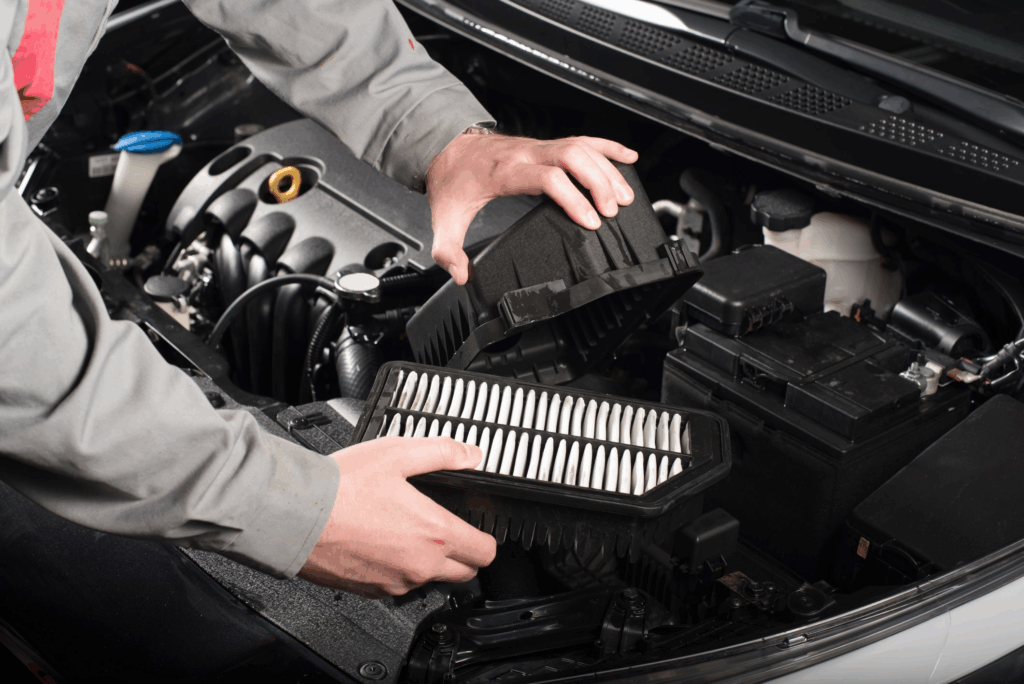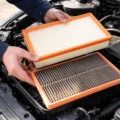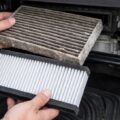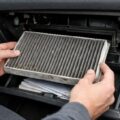What Are the Risks of Using a Low-Quality Replacement Filter?
When it comes to car maintenance, some parts may seem minor but play a significant role in long-term performance. One such component is the air filter. While many car owners treat air filter replacement as a routine job, the quality of the filter installed can make a world of difference. Opting for a low-quality or substandard filter might save a few dirhams upfront, but the hidden costs and risks are far greater in the long run.
Let’s explore why choosing the right air filter is crucial and what risks come with using a poor-quality replacement.
Why Is the Air Filter So Important?
Before diving into the risks, it’s essential to understand the function of an air filter. In simple terms, the air filter prevents dirt, dust, pollen, & other contaminants from entering the engine and the car’s cabin. It ensures that only clean air mixes with the fuel in the combustion chamber, follow-on in efficient engine performance.
There are two main types of air filters:
- Engine air filter – Defends the engine by filtering the air that goes into the combustion process.
- Cabin air filter – Ensures clean air inside the vehicle for passengers by filtering the ventilation and air conditioning systems.
Both types require regular replacement, but quality matters just as much as timing.
Reduced Engine Performance
A poor-quality engine air filter cannot trap fine particles effectively. As a result, dust and debris may enter the engine, causing abrasion on internal components like pistons, cylinders, and valves. Over time, this leads to:
- Loss of engine power
- Reduced acceleration
- Poor combustion efficiency
An engine struggling to breathe clean air will always underperform, and in extreme cases, this can cause irreversible damage.
Increased Fuel Consumption
An inefficient air filter restricts airflow to the engine, causing the air-fuel mixture to become unstable. This leads to:
- Higher fuel usage
- Unnecessary strain on the engine
- Poor fuel-to-power conversion
While a high-quality replacement ensures balanced airflow, a cheap filter may end up costing you more in fuel expenses over time.
Risk of Engine Contamination
Air filters are designed to block microscopic pollutants. Low-grade filters often lack the right structure, material, or density to catch fine particles. This means:
- Pollutants can enter the engine and mix with oil
- Oil contamination leads to sludge build-up
- Increases wear and tear inside the engine
This contamination reduces engine lifespan and can cause breakdowns at the most inconvenient times.
Damage to Emission Systems
Modern vehicles come equipped with sensors and emission control systems that require a clean and balanced engine environment. Dirty air or particles entering the system can:
- Affect oxygen sensors
- Damage the catalytic converter
- Increase emissions and pollution
In the long run, using a subpar air filter can result in expensive repairs and even cause your vehicle to fail emissions testing.
Poor Cabin Air Quality
While many drivers focus on engine air filters, cabin air filters are equally important for comfort and health. A low-quality cabin filter may:
- Fail to block allergens, dust, and odors
- Let in pollutants like exhaust fumes and pollen
- Increase respiratory issues for passengers
For drivers with children or those who suffer from allergies, using a certified and high-quality cabin filter is non-negotiable.
Frequent Replacements and Long-Term Costs
Low-quality air filters tend to deteriorate faster, meaning you’ll need more frequent replacements. Although the initial cost might seem low, the ongoing need for replacements, along with reduced efficiency, increases overall maintenance costs.
In contrast, investing in a premium filter ensures:
- Longer lifespan
- Better engine protection
- Reduced long-term expenses
Voiding Manufacturer Warranty
Using inferior aftermarket parts like low-grade air filters can sometimes void your car’s manufacturer warranty. If engine damage occurs due to a poor-quality filter, your warranty claim may be denied.
Vehicle manufacturers specify filter types for a reason. Sticking to recommended products from certified service providers ensures you remain covered under warranty terms.
How to Choose the Right Air Filter
To avoid these risks, always choose air filters from trusted brands and reliable service providers. Here are a few tips:
- Always check your vehicle’s manual for specifications.
- Use filters from reputable brands like Bosch, Mann, or OEM-approved providers.
- Ask your service center about the quality and certification of the replacement parts.
- Schedule replacement at regular intervals, typically every 10,000 to 15,000 km.
In Conclusion
Choosing a low-quality replacement filter might seem like a minor compromise, but the risks—from reduced performance to costly repairs—are far too significant. Always prioritize quality, particularly when it comes to something as essential as your engine’s health and your comfort.
For professional air filter replacement in Abu Dhabi, trust Arabian Star Tyre—where quality service meets unmatched expertise.









